 Software Tutorial
Software Tutorial
 Office Software
Office Software
 PPT is always in 'read-only mode', which can be solved like this
PPT is always in 'read-only mode', which can be solved like this
PPT is always in 'read-only mode', which can be solved like this
php editor Apple shares a method to solve the problem that PPT is always in "read-only mode". With simple operations, you can easily solve this problem, return your PPT to normal editing mode, and improve work efficiency.
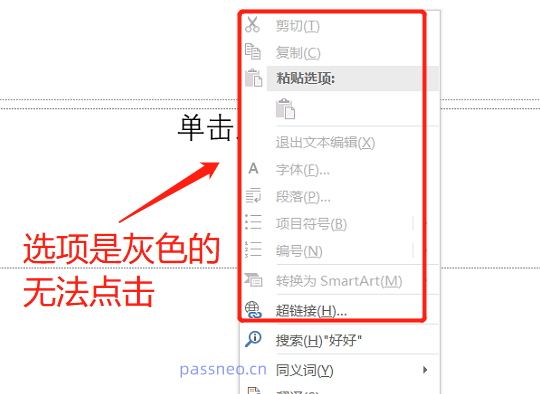
If you want to edit PPT in "read-only mode", you first need to release this mode.
PPT has two "read-only modes". If you are not prompted to enter a password after clicking to open the PPT, we can find the prompt below the toolbar [To prevent accidental changes, the author has set the file to open in read-only mode] , and then click the narration option [Edit Anyway], the PPT can be edited.

The above operation only makes the PPT editable now. After closing the file and opening it again, it will still be in "read-only mode".
If you want to directly remove "read-only mode", you can select [Edit Anyway], click [File] - [Information] in the menu bar, and then select [Always read-only mode] under [Protect Presentation] [Open], after saving the PPT, the "read-only mode" will be released.
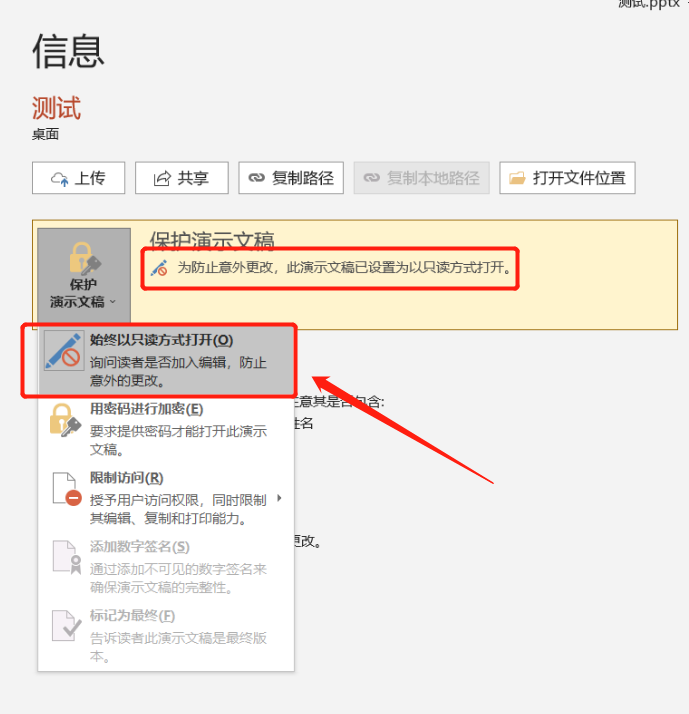
If a dialog box appears after opening the PPT, prompting [Enter password to modify or open in read-only mode], this is different from the previous "read-only mode", and a password is required to edit the file.
In the dialog box, click the [Read-only] option, you can still open the PPT, but you cannot edit the file.
In the dialog box, enter the password and click [OK], the PPT can be edited. This prompt box will still appear after closing the file and then opening it again.
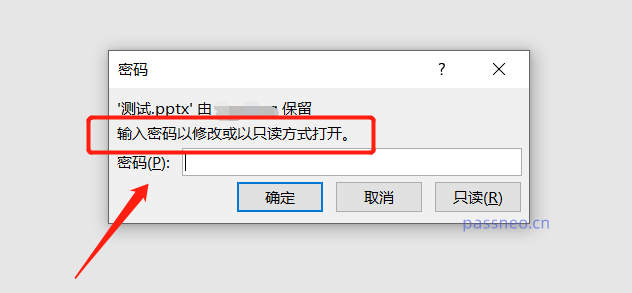
If you know the password and just want to remove this "read-only mode" and don't want to have to enter the password every time you open it, we can operate it directly in PPT. If you have forgotten your password and want to remove this pattern, we can try the tool at the end of the article.
In the first case, enter the password to enter editable mode, select [Save As] under the [File] option in the menu, and then select the save path on the right.
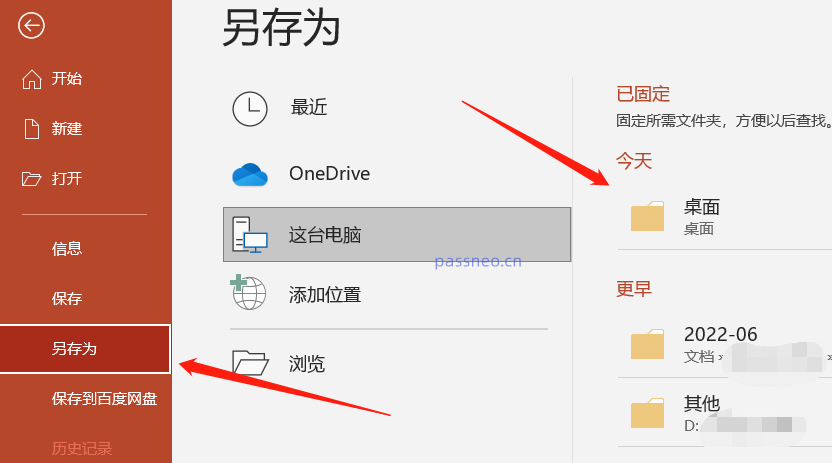
After the dialog box pops up, click [General Options] in the [Tools] list below. The file name can be modified and saved as a new file, or the original file can be directly overwritten without changing it.
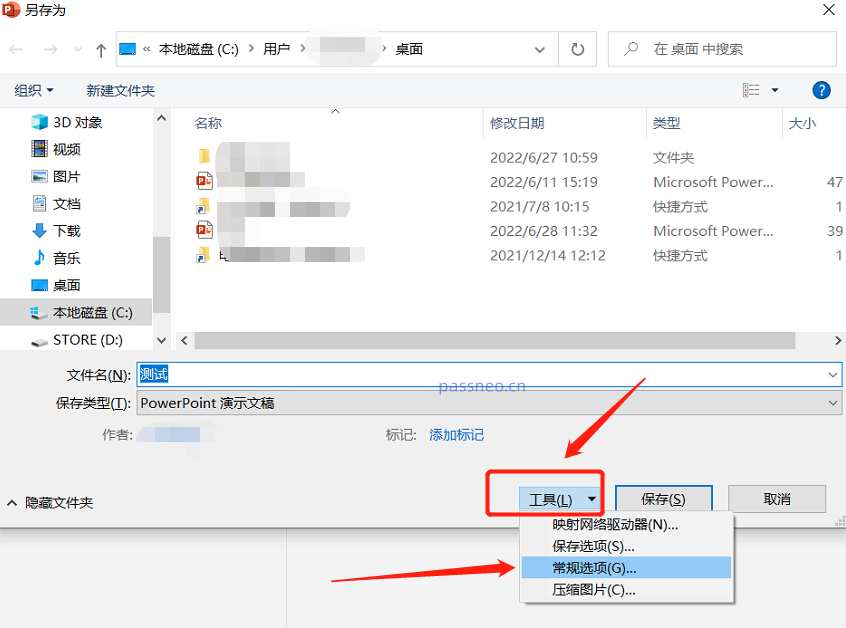
After the dialog box pops up again, you can see that there is already a password in the [Modify Permission Password] column. Delete the password and turn it into a blank space. Click [OK] to save the file. The PPT is saved as a PPT without "read-only mode".
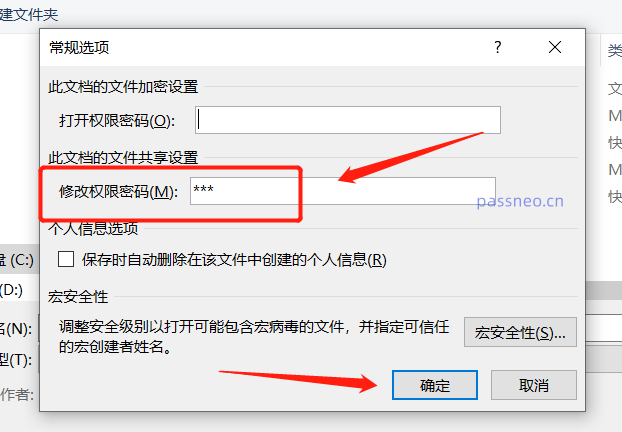
In the second case, if you don’t remember the password, you can use other tools to solve it. For example, the Pepsi Niu PPT password recovery tool has an [Unrestriction] module. After clicking it and importing the PPT into the tool, you can remove the "read-only mode" without entering a password.
Tool link: Pepsi Niu PPT password recovery tool
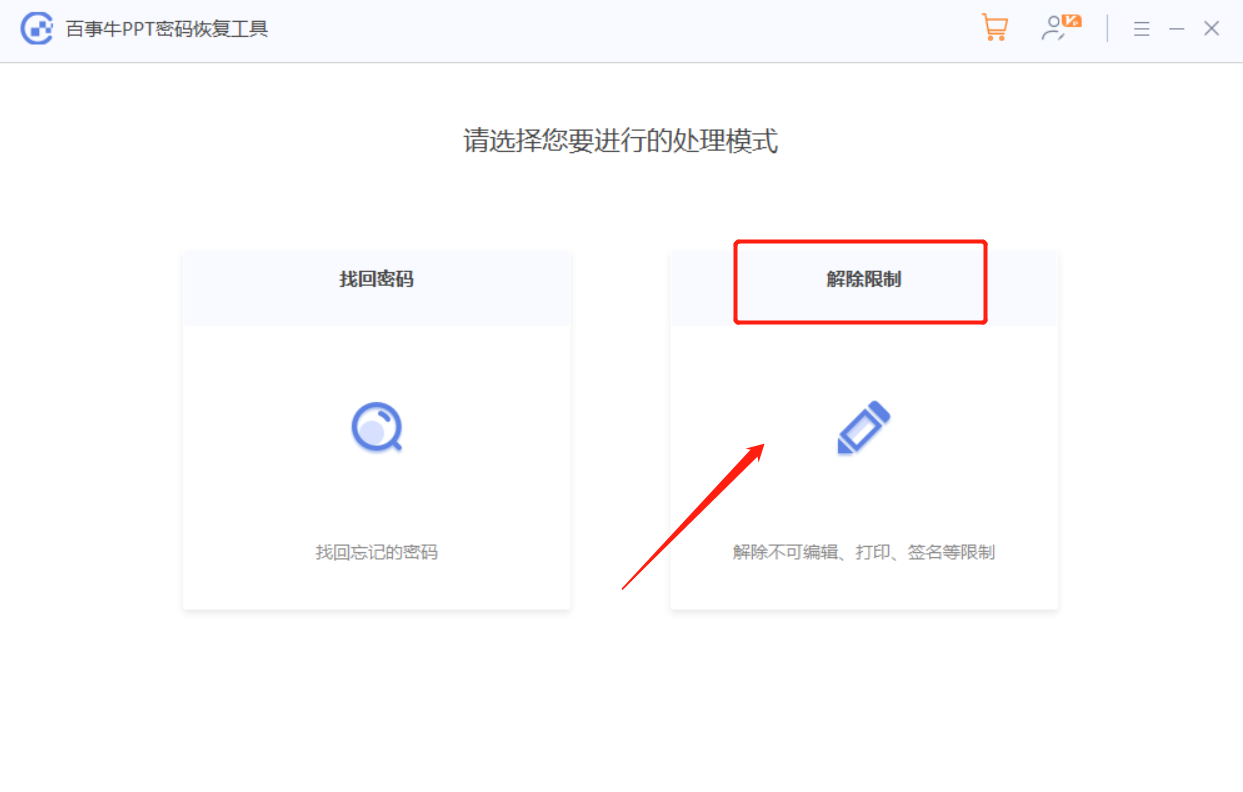
The PPT after the restrictions are lifted will be saved as a new file, click [Go to View] to find it.
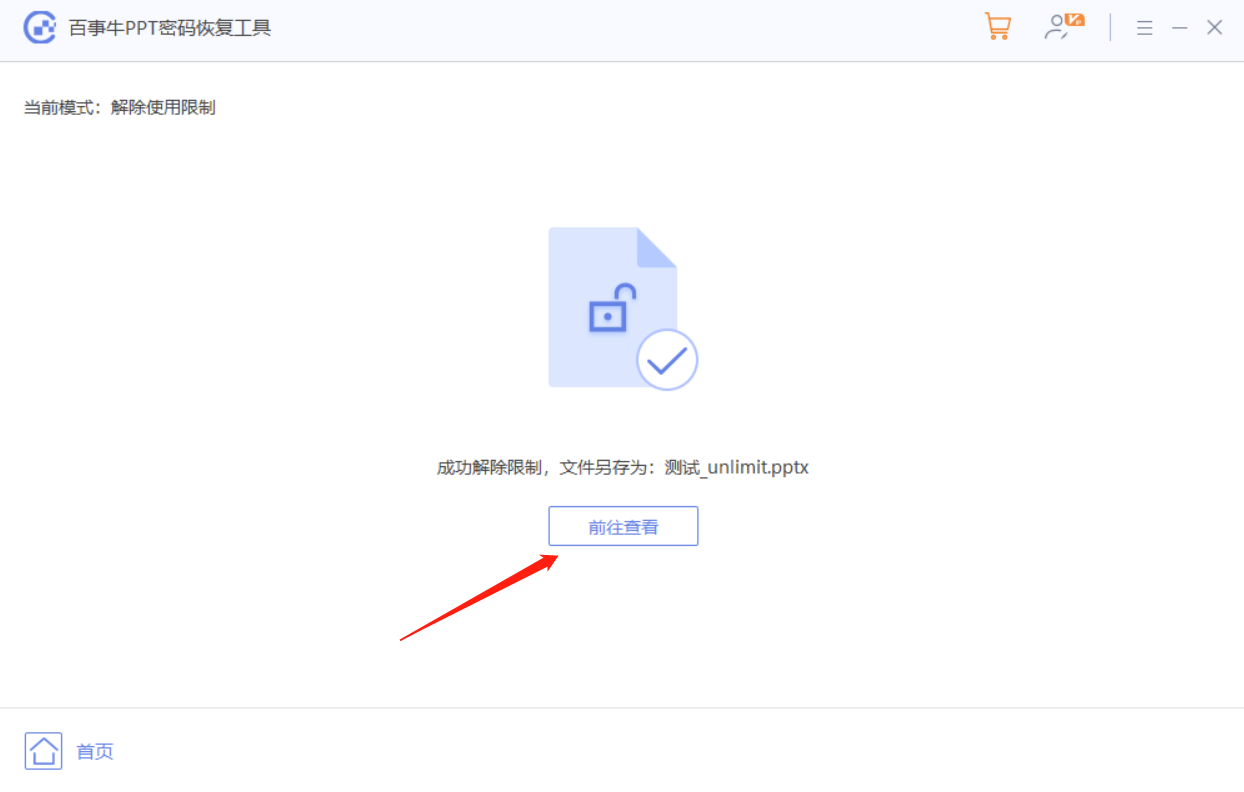
The above is the detailed content of PPT is always in 'read-only mode', which can be solved like this. For more information, please follow other related articles on the PHP Chinese website!

Hot AI Tools

Undresser.AI Undress
AI-powered app for creating realistic nude photos

AI Clothes Remover
Online AI tool for removing clothes from photos.

Undress AI Tool
Undress images for free

Clothoff.io
AI clothes remover

AI Hentai Generator
Generate AI Hentai for free.

Hot Article

Hot Tools

Notepad++7.3.1
Easy-to-use and free code editor

SublimeText3 Chinese version
Chinese version, very easy to use

Zend Studio 13.0.1
Powerful PHP integrated development environment

Dreamweaver CS6
Visual web development tools

SublimeText3 Mac version
God-level code editing software (SublimeText3)

Hot Topics
 Your Calculator App Can Be Replaced By Microsoft Excel
Mar 06, 2025 am 06:01 AM
Your Calculator App Can Be Replaced By Microsoft Excel
Mar 06, 2025 am 06:01 AM
Ditch the Calculator: Why and How to Use Excel for All Your Calculations I haven't touched a calculator in ages. Why? Because Microsoft Excel handles all my calculations with ease, and it can do the same for you. Why Excel Trumps a Calculator While
 Don't Create Tables in Word: Use Excel Instead
Mar 06, 2025 am 03:04 AM
Don't Create Tables in Word: Use Excel Instead
Mar 06, 2025 am 03:04 AM
Creating tables in Word, although improved, is still cumbersome and sometimes brings more problems. This is why you should always create tables in Microsoft Excel. Why is it better to create tables in Excel? In short, Word is a word processor, while Excel is a data processor. So Word is not built for the best table creation, but its similar product, Excel. Here are just some of the reasons why creating tables in Excel is better than using Microsoft Word: Although it is surprising that you can use many Excel-like features in Microsoft Word tables, in Excel you
 5 Things You Can Do in Excel for the Web Today That You Couldn't 12 Months Ago
Mar 22, 2025 am 03:03 AM
5 Things You Can Do in Excel for the Web Today That You Couldn't 12 Months Ago
Mar 22, 2025 am 03:03 AM
Excel web version features enhancements to improve efficiency! While Excel desktop version is more powerful, the web version has also been significantly improved over the past year. This article will focus on five key improvements: Easily insert rows and columns: In Excel web, just hover over the row or column header and click the " " sign that appears to insert a new row or column. There is no need to use the confusing right-click menu "insert" function anymore. This method is faster, and newly inserted rows or columns inherit the format of adjacent cells. Export as CSV files: Excel now supports exporting worksheets as CSV files for easy data transfer and compatibility with other software. Click "File" > "Export"
 How to Reduce the Gaps Between Bars and Columns in Excel Charts (And Why You Should)
Mar 08, 2025 am 03:01 AM
How to Reduce the Gaps Between Bars and Columns in Excel Charts (And Why You Should)
Mar 08, 2025 am 03:01 AM
Enhance Your Excel Charts: Reducing Gaps Between Bars and Columns Presenting data visually in charts significantly improves spreadsheet readability. Excel excels at chart creation, but its extensive menus can obscure simple yet powerful features, suc
 How to Use the AVERAGEIF and AVERAGEIFS Functions in Excel
Mar 07, 2025 am 06:03 AM
How to Use the AVERAGEIF and AVERAGEIFS Functions in Excel
Mar 07, 2025 am 06:03 AM
Quick View of AVERAGEIF and AVERAGEIFS Functions in Excel Excel's AVERAGEIF and AVERAGEIFS functions can be used to calculate the average value of a dataset. However, unlike simpler AVERAGE functions, they are able to include or exclude specific values in the calculation. How to use the AVERAGEIF function in Excel Excel's AVERAGEIF function allows you to calculate the average value of a filtered dataset based on a single condition set. AVERAGEIF function syntax The AVERAGEIF function contains three parameters: =AVERAGEIF(x,y,z)
 How to Use LAMBDA in Excel to Create Your Own Functions
Mar 21, 2025 am 03:08 AM
How to Use LAMBDA in Excel to Create Your Own Functions
Mar 21, 2025 am 03:08 AM
Excel's LAMBDA Functions: An easy guide to creating custom functions Before Excel introduced the LAMBDA function, creating a custom function requires VBA or macro. Now, with LAMBDA, you can easily implement it using the familiar Excel syntax. This guide will guide you step by step how to use the LAMBDA function. It is recommended that you read the parts of this guide in order, first understand the grammar and simple examples, and then learn practical applications. The LAMBDA function is available for Microsoft 365 (Windows and Mac), Excel 2024 (Windows and Mac), and Excel for the web. E
 Microsoft Excel Keyboard Shortcuts: Printable Cheat Sheet
Mar 14, 2025 am 12:06 AM
Microsoft Excel Keyboard Shortcuts: Printable Cheat Sheet
Mar 14, 2025 am 12:06 AM
Master Microsoft Excel with these essential keyboard shortcuts! This cheat sheet provides quick access to the most frequently used commands, saving you valuable time and effort. It covers essential key combinations, Paste Special functions, workboo
 If You Don't Use Excel's Hidden Camera Tool, You're Missing a Trick
Mar 25, 2025 am 02:48 AM
If You Don't Use Excel's Hidden Camera Tool, You're Missing a Trick
Mar 25, 2025 am 02:48 AM
Quick Links Why Use the Camera Tool?





